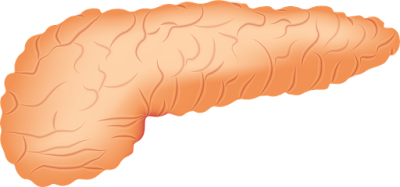Supplements and Health
Vitamin Supplements
Companies that produce dietary supplements tempt their customers the promise of a better life and well-being. So let's find out if indeed these preparations are effective and safe for our body.
The more vitamins and minerals, the better
You have to remember that excess components is not at all good for our body. This can cause the condition to worsen our health and well-being. And often happens that people who use dietary supplements commit this error and increase the dose of their own.
Remember! In particular, you need to be careful not to overdose include wit. A, D and K, as well as iron, because you may experience nausea, dizziness, skin problems and the risk of kidney failure and liver.
Preparations can not replace diet
Remember! A primary source of nutrients for the body, the foods. Dietary supplements can only complement the menu.
After preparations should reach pregnant women, people who work hard physically, or are exposed to severe stress. Dietary supplements are also useful for tobacco smokers, seniors and vegetarians.
Supplements and children
A child who is properly fed (in accordance with the principles of nutrition pyramid) is replaced in foods all the necessary ingredients and dietary supplementation is unnecessary to him.
Your child may be given extra:
- preparations of vitamin C - in the winter, when there is no fresh fruit and vegetables and the child is sickly, and magnesium - when a child is hyperactive.
Supplements not for everyone
Contraindication to supplementation are chronic conditions (eg diabetes, hypertension), sometimes allergy, because the preparation may cause sensitization, as well as other treatments (because it may lead to drug interactions).
It is so for your own safety, before using the product, consult a doctor.
100% of the needed dose
Daily diet already provides many nutrients. Therefore, dietary supplements do not need (nor should they) contain all required by our body doses of vitamins and minerals.
Simply, the tablet comprises 70% of needed amount of ingredients.
Foods - always the best source of nutrients
There are exceptions to this rule. The first exception is folic acid, which is better absorbed in the form of synthetic (oral tablets). Then there are the omega-3 fatty acids, because they contain fish can come from contaminated waters. Therefore, a better solution may here be a capsule formulation.
Fully safe natural ingredients
If supplements are taken in accordance with the manufacturer's instructions, it may cause harm. For example, for too long used ginseng can cause problems with sleep, and too high doses of St. John's wort cause skin discoloration.
The best means of comprehensive
Our body absorbs vitamin tablets preferably when they are present together with compounds of the fruit. Therefore, such wit. C is often combined with an extract of the fruit rose or chokeberry.
Interaction with drugs and food
Unsuitable combination are:
- Vitamin A + contraceptives or foods rich in fiber;
- Vitamin E + anticoagulants;
- calcium + cardiac medications;
- St. John's wort + oral contraceptives, non-steroidal anti-inflammatory or anti-depressants.
Supplements - same as drugs, only worse
Remember! Dietary supplements are not drugs and do not remove the disease.You can not replace them pharmacological agents that are prescribed by your doctor. The formulations can only improve the performance of the body, but you have to take them regularly, and should be well adjusted to the needs of our body.
Important: Some tablets do not replace food preparation rich in vitamins and minerals. So first you have to take care of a proper diet that is rich in nutrients.
Vitamins should be taken with a meal or immediately after it. The food should contain some fat, because this will ensure better absorption of vitamins A, D, E and K.


Comments
Post a Comment